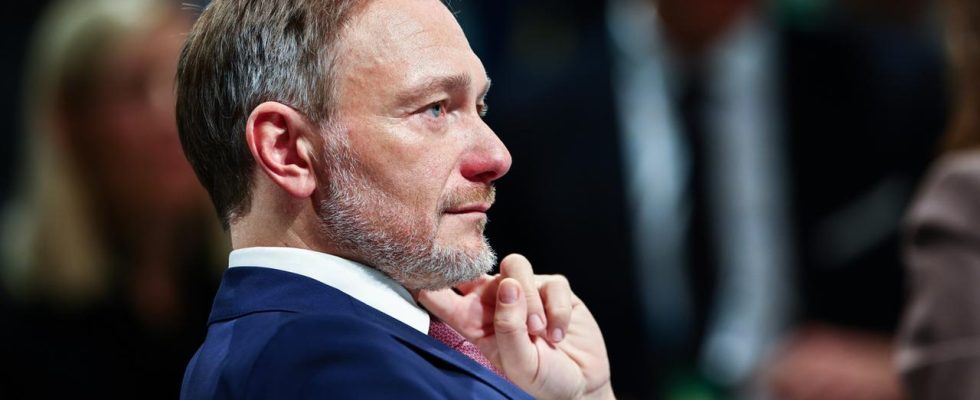analysis
At the G20 finance ministers meeting starting today in Sao Paulo, Lindner will have to talk about how the global economic situation can be improved. He currently has a lot of his own construction sites.
The meeting of the finance ministers of the G20 countries will not be easy for Christian Lindner. The situation is tense, the war of aggression on Ukraine and, for months now, the war in Israel are putting a strain on the economy worldwide. The International Monetary Fund expects global growth of 3.1 percent this year. Europe in particular is weakening and the federal government expects the German economy to grow by only 0.2 percent.
Lindner will have to ask his financial colleagues at the meeting what he will do to stimulate the German economy. Lindner will certainly reject phrases like “the sick man of Europe,” but he will certainly hear them.
Bundesbank chief: weak phase continues
With little tailwind, Lindner travels to Sao Paulo, accompanied by Bundesbank boss Joachim Nagel. He doesn’t sound optimistic at the moment either. The global economy is currently growing moderately, he told the ARD capital studio.
A key reason for the weak growth is Russia’s war of aggression against Ukraine. “The associated high energy prices have left a clear mark on the economy. The central banks in many regions of the world had to counteract inflation with higher interest rates. As a large, open economy, Germany is particularly affected by the consequences of this war.”
He assumes that this weak phase in the German economy will continue. “Over the course of the year, the economy should gradually regain its footing,” says Nagel. “The decline in inflation and high wage agreements are supporting the purchasing power of private households and foreign demand should increase again.” He is confident that companies will master this challenge such as digitalization or the energy transition.
Appeal to politics
However, Nagel criticizes that it is now up to politicians to improve these framework conditions. Now it’s Finance Minister Lindner’s turn again. He is currently looking at many construction sites: The “Growth Opportunities Act”, which is intended to stimulate the German economy, is currently on hold, blocked by the Union.
There is no joint economic plan from him and his coalition partner, Economics Minister Robert Habeck, on how to stimulate the economy. The approach is currently too different, which makes sense. However, it is clear that the Russian war of aggression against Ukraine will continue to burden the economy for a long time.
Taboo topic: war of aggression in Ukraine
But the war against Ukraine or the war in Israel is apparently being pushed aside as a topic at the meeting by the Brazilian G20 presidency. This is intended to make progress in the talks and avoid conflicts, it is said.
At the meeting a year ago in India, the G20 states were unable to agree on a joint final declaration. The attitudes towards Russia’s war in Ukraine were too different. The G20 country China resisted condemnation. Rather, Brazil wants to talk about global inequality, the debt of many developing and emerging countries and international taxation.
Frozen Russian funds
Another topic is also causing discussion: the frozen assets from Russia. In the run-up to the G20 meeting, US Treasury Secretary Janet Yellen is now putting pressure on the money to be used to help Ukraine. That’s currently around $285 billion.
The western G7 states in particular will discuss this on the sidelines of the G20 meeting in Sao Paulo. There should be no decisions on this. There are still reservations and, above all, legal concerns among the states.
Ina Rottscheidt, ARD Rio de Janeiro, tagesschau, February 28, 2024 8:38 a.m

